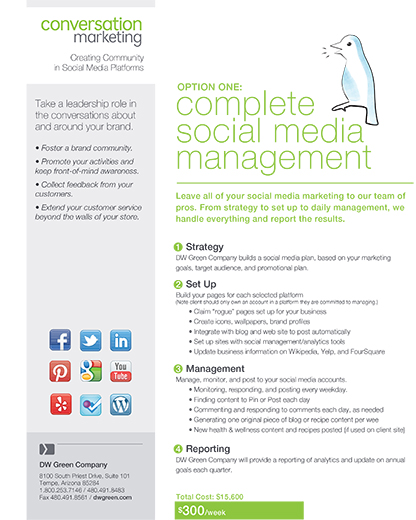Company Blog
Humble Servant
by Adam Zack — February 1, 2023

In servant leadership, employees are empowered.
Often when I call DW he answers the phone “Humble Servant speaking”. I thought it was kind of funny, maybe a little self-deprecating, and beneath what he brings as a leader. He has a wealth of wisdom, knowledge and experience and I thought of him more as the opposite of a Humble Servant. (And no, I am not brown-nosing to get a raise.) It was only last week when I was having my nightly debriefing with my wife about how our day was that she told me about how one of the founders of the financial firm she works for talked about the role of the leader is really that of a servant. It clicked with me, and I did a little more research into what the style of being a servant as a leader really means.
The term “servant leader” was first coined by Robert K. Greenleaf in 1970 in the essay “The Servant as Leader.” Basically, the servant leadership style was based on the idea that leaders prioritize serving the greater good. Leaders with this style serve their team and organization first. They don’t prioritize their own goals. They are unselfish and caring.
Servant leadership seeks to achieve a vision by providing strong support to employees. In turn, this allows employees to learn and grow while bringing their own expertise and vision to the table. This hinges on building influence and authority rather than using control and old fashioned, heavy handed leadership tactics.
In servant leadership, employees are empowered. But the leader doesn’t just disappear. He/She has constant awareness of what is going on with his/her business and employees.
Greenleaf’s 10 principles of Servant Leadership are:
- Listening: It’s important to fully listen to members of the team without interrupting.
- Empathy: It’s important to get to know your team so that you can use empathetic leadership to help them grow.
- Healing: Members of your team may have trauma from previous toxic work experiences. Help others to create a healthy work-life balance to give them the space to heal.
- Self-awareness: A servant leader must also recognize their own strengths and weaknesses. This is to understand how they fit within the overall team.
- Persuasion: Servant leaders can use persuasion and influence instead of just power to get team members to be on the same page.
- Conceptualization: Servant leaders need to be able to use big-picture thinking. With this, they can conceptualize plans for their team and their organization.
- Foresight: It’s important to use what you and your team learn to improve in the future.
- Stewardship: Lead by example so that your team can do what you do, not just do what you say.
- Commitment to the growth of people: You need to allocate time and resources to help people and teams grow. Tools like organizational training, development programs, and growth and transformation coaching can help.
Thank you, Humble Servant, for helping teach me and make me a better leader.
Read More – A Tidbit of Consciousness
Filed Under: Company Blog






















































Good stuff, Adam.
I was fortunate to work for two genuine servant leaders, both at the top levels, one a CEO. These were bosses whose teams could move mountains without a instilling control or using fear.
I distinctly remember their commitment to people, leading with a mindset of removing roadblocks and hindrances. And providing tools for growth. Removing obstacles and providing growth tools allowed individuals to flourish, perform at levels they’d never been able to before.
Servant leadership can appear to be passive encouragement, or worse, as kind disengagement to someone who hasn’t fully experienced it. And it’s often misunderstood by leaders who crave control. But make no mistake, it’s a game changer. It’s all of the things you list from Greenleafs 10 Principles, and better.
We need more servant leaders in the workplace.
Thanks Brad. I totally agree with you. I’ve worked with both servants and dictators, and the employee morale is always way better.
Hope all is well with you and the family.
Adam